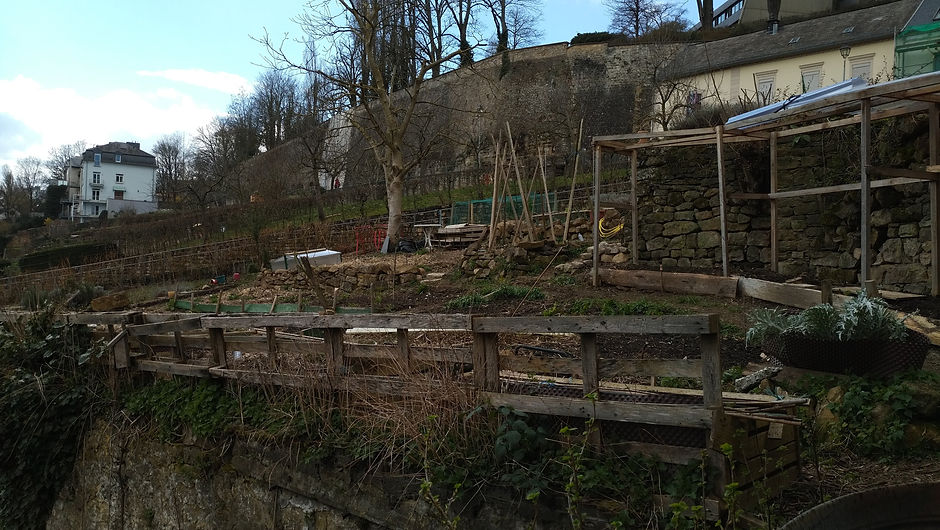
Case Study: Luxembourg
Organisation type: Non-profit organisation
Web address
Contact: Karine Paris
Community size: 10 people involved in this project drawn from the wider community
Sustainability focus: Post-carbon resilience
Funding and Financing sources: Ministry of Environment and State of Luxembourg funding
Current priorities:
-
Climate Change
-
Waste
-
Water
-
Local Food
-
Social Enterprise
Stated aim of community:
The Centre of Ecological Learning (CELL) is a not for profit organisation. The centre provides an outlet for research and dissemination to support the practice of “post-carbon lifestyles and regenerative cultures”. The aim of CELL members is to learn, and pass on the skills needed for post-carbon communities, with the desired result of creating resilient, thriving and localised communities.
Additional information:
Initial contact to enlist participants was made through evening events, which also provided feedback prior to commencement of the project. An unintended outcome of the evening events was the formation of social interactions which were found to be beneficial.
Three allotment management concepts were employed:
-
A transition city garden
-
A community (common) garden
-
Private allotments
The transition city garden provides each member with an equal say on all aspects of the management and running of the garden.
The community garden was established in 2012 on a large privately owned plot. This plot is divided into individual plots and a community plot. However, some issues have arisen; the term community plot was thought to be inappropriate and therefore the term common plot is used to reflect the intended purpose of the garden.
In 2015 the contract with the owner ceased. While the owner of the land is happy and willing to continue with the current arrangement whereby the land is offered for free with on contract and an agreement based on trust, the gardeners using the land want the security of a legal agreement. As a result the next step for the gardeners is to set up an association to look after their interests.
The private allotments, which have been in operation since WW1 as a means to grow food locally, are run by a gardeners association. The private allotments have incorporated a community plot and have asked CELL to support them through talks and lectures. A positive outcome of this relationship is that pesticides are no longer used in the allotments. This was achieved by demonstrating to the gardeners that pesticides are not necessary and alternative methods are effective.
An ecologist is employed on the project to give advice on a range of environmental issues. Biodiversity is recognised as being of great importance and for this reason pesticide used has been eliminated and weeds are generally left alone as these are important to biodiversity, nutrient cycling and plant growth.
Social interaction and integration are also important components of the project. This encourages others to get involved, people who would otherwise not necessarily be gardeners or environmentalists. Currently there are 10 participants in the project, aged between 30 and 70 years of age. One of the participants is a refugee and is partaking in the project as a way integrating into the community. This is also a positive outcome as it can build trust between locals and immigrants.
Initial findings identified weaknesses in data collection. The protocol looked for too much from participants in terms of heavy data collection which resulted in many errors. The participants are not trained scientists, however there was a successful transfer of science to citizens. This became evident as participants began to work with, and learn the importance of soils and the science of living soils. In addition, research is ongoing within the group on slugs, what can be done about them, and can they be a resource?
Funding for the current project ceased in November 2018. A continuation project will entail designing the project with the participants, and it is envisioned that this will result in a citizen science project incorporating gardeners and the relationships between nature and health.

